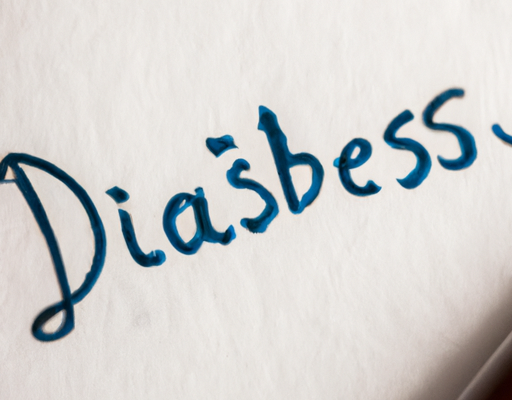• Definition of psychogenic polydipsia
Psychogenic polydipsia is a disorder in which an individual consumes abnormally large amounts of fluids beyond what the body needs for hydration. It is a psychological disorder resulting from a psychological problem like depression, anxiety or schizophrenia. It is not entirely understood why this condition develops, but it is believed to be a psychological response to distress or boredom. Characterized by excessive thirst and fluid intake (more than five liters per day), it can lead to a range of serious medical complications including:
- Lethargy
- Rapid weight gain
- Salt imbalance
- Edema
- Dilated pupils
- Decreased urine output
- Heart failure
Psychogenic polydipsia is often confused with diabetes insipidus, also known as water diabetes, a rare condition in which a person has frequent urination and excess thirst due to a lack of antidiuretic hormone. Diagnosis of psychogenic polydipsia can be difficult, since the causes are psychological rather than physical. Treatment is focused on identifying and managing the underlying psychological problem, as well as closely monitoring fluid intake and electrolyte levels.
• Definition of diabetes insipidus
Diabetes insipidus is a medical condition that is characterized by excessive thirst and an abnormally large amount of dilute urine. It is caused by a deficiency of the hormone vasopressin or a defect in the kidney’s ability to respond to the hormone. It is important to know the difference between psychogenic polydipsia and diabetes insipidus, as the two can have similar symptoms. The following are the key features of diabetes insipidus:
- Excessive thirst
- Excessive urine production
- Urine produced is not very concentrated
- The urine has very low levels of sodium, potassium and other electrolytes
- Difficulty maintaining normal body temperature
- Fatigue, weakness, and poor appetite
Diabetes insipidus can be diagnosed through a combination of blood and urine tests. Treatment for the condition includes hormone replacement therapy and medications that increase the kidney’s sensitivity to vasopressin. It is important to seek medical attention if you are experiencing any of the symptoms of diabetes insipidus.
• Differences between psychogenic polydipsia and diabetes insipidus
Psychogenic polydipsia and diabetes insipidus are two separate yet related conditions. They both involve excessive thirst and drinking, but the underlying causes of this thirst and drinking behavior are quite different. Psychogenic polydipsia is caused by psychological factors and is characterized by a person drinking large amounts of water, often without the sensation of thirst. Diabetes insipidus, on the other hand, is characterized by the body not being able to regulate fluids, resulting in increased thirst and the need to urinate frequently. This occurs due to a malfunctioning of the hypothalamus or pituitary glands, and can be caused by either a defect in the body’s own production of antidiuretic hormone, or by a buildup of certain toxins in the body. Both conditions can lead to dehydration, but the treatment for each is very different. Treatment for psychogenic polydipsia focuses on addressing the underlying psychological issues, while the treatment for diabetes insipidus is aimed at restoring normal functioning of the hypothalamus or pituitary glands.
• Signs and symptoms of psychogenic polydipsia
Psychogenic polydipsia is an excessive and persistent thirst that is caused by a psychological disorder. While it bears similarity to diabetes insipidus, psychogenic polydipsia is not caused by a defect in the body’s ability to regulate fluid with the use of antidiuretic hormone (ADH). The signs and symptoms of psychogenic polydipsia may vary depending on age, medical history, and psychological state. Generally, it is characterized by feelings of excessive and persistent thirst, frequent urination, dehydration, electrolyte imbalances, fatigue, extreme dryness of the mouth, lips, and skin, and frequent trips to the bathroom to drink more water. In more severe cases, people with psychogenic polydipsia may become obsessed with water and drink more than four to eight liters per day. These individuals may also become emotionally dependent on water, viewing it as a form of comfort.
• Signs and symptoms of diabetes insipidus
Diabetes insipidus is a rare condition characterized by extreme thirst and the production of large amounts of watery urine. It is caused by the body’s inability to properly regulate its hydration levels, leading to the extreme urge to drink. Common signs and symptoms of diabetes insipidus include excessive thirst, urine production of greater than 3 liters per day, feeling of extreme hunger even after eating, dry skin, fatigue, nausea and abdominal pain. People affected with diabetes insipidus may also experience headaches, fever and in some cases, difficulty concentrating and confusion. Additionally, diabetes insipidus can cause blurred vision, dryness of mouth, anemia, and muscle twitching. It is important to note that due to the presence of other health conditions, these signs and symptoms can occur even without diabetes insipidus being present. Medical attention should be sought if any of these signs and symptoms are experienced.
• Diagnosis of psychogenic polydipsia
When diagnosing psychogenic polydipsia, a physician will typically review the patient’s medical history, their symptoms, and overall lifestyle. The patient will be asked questions about their fluid intake, and if it’s wildly excessive compared to what is medically recommended. It is common for the patient to be asked if they drink in an attempt to fill any psychological need, such as to ease anxiety or depression. Based on the physician’s review and the patient’s answers, a diagnosis of psychogenic polydipsia can be made. In some cases, a blood or urine test may be ordered to make sure excessive fluid intake is not the result of a medical condition like diabetes insipidus.
• Diagnosis of diabetes insipidus
The diagnosis of diabetes insipidus begins with measuring the levels of urine output and solute concentration. After it has been determined that dilute urine is being produced, further testing can be conducted to determine if the cause is psychogenic polydipsia or diabetes insipidus. A water deprivation test may be done, as well as a test involving the injection of a hormone called vasopressin, or antidiuretic hormone, which is normally responsible for decreasing urine production in order to conserve water. If the injection is ineffective in decreasing the output of urine, then the diagnosis is diabetes insipidus. In this case, a physician would need to identify the underlying cause of the disorder, such as kidney dysfunction or a brain tumor. Treatment for this condition with synthetic vasopressin is then usually prescribed.
• Treatment of psychogenic polydipsia
Treating psychogenic polydipsia is complex and requires a comprehensive, multi-disciplinary approach. Treatment typically consists of psychotherapy and medications such as antidepressants, antipsychotics and mood stabilizers. The goal of therapy is to help the individual better manage their emotions and develop healthier coping mechanisms. In some cases, a psychotherapist may recommend hospitalization if the individual is a danger to themselves or others. Treatment may also involve support from a nutritionist to help the individual develop and maintain healthy eating habits. They may also need to be monitored for electrolyte imbalances or other medical conditions. It is important to treat the underlying causes of psychogenic polydipsia in order to effectively manage the condition and avoid serious health consequences.
• Treatment of diabetes insipidus
For people with diabetes insipidus, treatment involves replacing the missing anti-diuretic hormone (ADH) with a synthetic version of the hormone. Typical treatments of diabetes insipidus include:
- Replacing ADH with a synthetic version of the hormone.
- Utilizing treatments such as desmopressin (DDAVP) to stimulate the release of ADH.
- Drinking plenty of fluids and avoiding high temperatures, because dehydration and increased body temperature can worsen symptoms.
- Taking blood pressure and heart rate medications, such as thiazide diuretics and beta-blockers, to help control the amount of water in the body.
- In severe cases, kidney transplantation may be recommended.
Patients should discuss their treatment options with their doctor and work together to find the option that is most effective and appropriate for their individual needs.
• Prevention of psychogenic polydipsia
Psychogenic polydipsia is a common, serious, and potentially life-threatening disorder that can cause severe dehydration due to excessive water intake. Fortunately, there are several ways that people can prevent psychogenic polydipsia or treat it early before it becomes a serious problem.
- The most important thing is to recognize the risk factors and symptoms, and consult a healthcare provider if necessary.
- Stay aware of changes in behavior or activity that could be a sign of polydipsia.
- Encourage regular physical activity and healthy eating habits.
- Promote positive coping skills, such as relaxation techniques or cognitive behavior therapy.
- Ensure that the person has access to safe and reliable sources of drinking water.
- Discuss the risk of polydipsia with any health providers who are treating the individual.
- Encourage proper and frequent hydration during the day.
- Monitor the amount of water consumed on a daily basis.
- Explore other strategies to address the underlying causes of the disorder, such as managing stress, addressing a mental health disorder, or participating in regular counseling.
By following these simple steps, people at risk for psychogenic polydipsia can take steps to help prevent and manage the disorder. Early identification, along with proper management, can significantly improve the quality of life and reduce the risk of complications.
• Prevention of diabetes insipidus
Preventative measures to help stave off the onset of diabetes insipidus involve maintaining a healthy lifestyle. Practices such as regular exercise, proper hydration and nutrition, getting adequate rest and staying stress free are essential. Regular check-ups with a doctor help to identify potential signs of the condition at an early stage, so that appropriate treatment may be administered. Taking medications as prescribed is also important for those who have diabetes insipidus. By following a healthy lifestyle, one can help to reduce the risk of developing this condition and greatly improve their quality of life.





No Comments